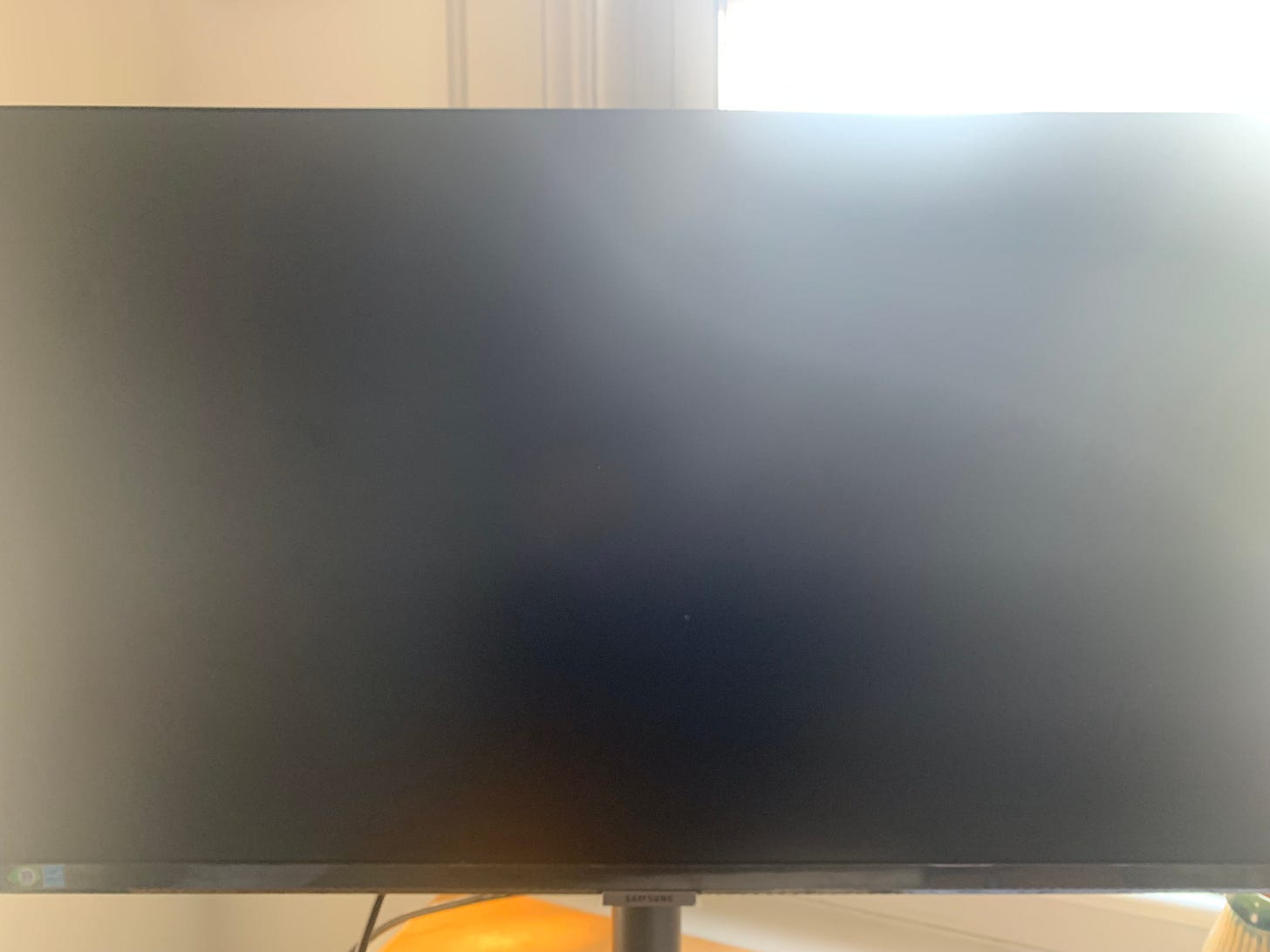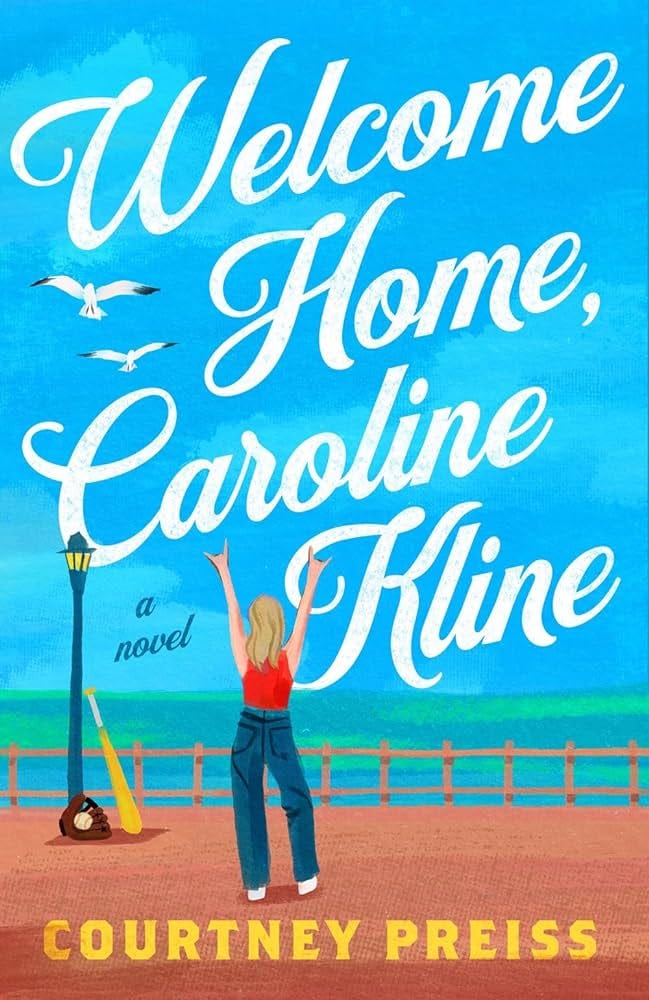Every now and then I’m asked by someone unfamiliar with the publishing world if I still work a job now that I’ve sold my novel…or if I just, like, write now.
It’s an incredibly sweet sentiment, one I have imagined endlessly, but I have to suppress a cackle. How could a person outside the world of writing know how little writers are paid? The numbers are nearly unbelievable given how hard it is to actually put coherent words on a page, let alone a book’s worth of them. But the sad truth (highlighted in a recently viral essay about the dire state of publishing) is that very few writers make enough money to only write books. In some twisted albeit predictable capitalist maneuver, writers actually make the least amount of money out of anyone involved in the publishing process.
So, no. I do not sit around and write all day—if only. I have a day job. Almost all novelists do, unless they’re Sally Rooney or have a spouse who supports them.
A lot of writers’ jobs are writing-related: copywriting, editing, journalism, teaching. But not all. My day job has nothing to do with writing. I work in tech, specifically in what’s called “product,” which (loosely) means figuring out what to build for an app or website and working with designers and engineers to make it happen.
For most of my professional life, my work was not so much a “day job,” as it was my career. Most of my decisions between the ages of 18 and 34 were structured around climbing a specific professional ladder to ensure financial stability. Second to that, I attempted to pursue the millennial mantra of “loving my work”—pivoting my business and tech background to nonprofits, socially minded business, running my own company. But when I discovered writing in my 30s, it became undeniable that, most of the time, I didn’t actually love my work beyond the rather flimsy sense of self it brought me.
Thank god by that point I understood that pivoting to some writing-related job, capitalizing on the one thing that really did bring me pleasure, would not be the golden ticket to “loving my work.” If I sit with a piece of writing and search the thesaurus long enough, I can kind of make it work. But it’s not intuitive to me the way spreadsheets and slide decks are—the tools I professionally grew up on. I keep at it because I want to untangle and ideally convey my own specific thoughts, and I’ll work tirelessly to get there. But if I had to do this on the clock, to convey someone else’s thoughts? There’s no way. I would work way harder, get paid way less, and end up hating writing.
And so I swallowed the hard, cold fact—intuitive to many but which took me a long time to confront—that our society isn’t at all structured for most people to actually do what they love for money, so much as it is for companies to exploit this ethos. From there, I stopped chasing the illusive millennial dream and found a well-paying job but one where I was no longer managing a team or on a particular leadership track. And my work shifted from something that defined me, to something I did for money.
This is an uncomfortable shift when you’ve long equated your self-worth with your professional accomplishments. By now, I’ve mostly shed any desire to climb a professional ladder; I do my job and collect my paycheck. And yet my whole professional setting is designed around the assumption that everyone working there does and should want more. On the rare occasion I log into LinkedIn, I see my peers and former colleagues boasting of new titles and I have to close it quickly as if I were Dracula and someone had switched on a light. It conjures my old self and her framework for success, which makes me feel ashamed that I’ve given up after all the work that she put in. I have to remind myself that I’m not a quitter, per se, I’ve just decided to play a different game, a game that’s more interesting and challenging to me at this point in my life.
More and more women my age (older millennials) are waking up to the idea that our jobs are not everything, that they can just be, well, jobs. And that most jobs are wrought with capitalist compromise, no matter the “impact” they allege. This is not to say we don’t take our work seriously and do it well, but our self-worth is no longer wrapped up in our title or salary. Many journalists—Ann Friedman, Ann Helen Peterson, surely some other Anne—have written about this at length. Part of it is the simple reality of getting older. We want to prove we can do something, then we do it, and realize it’s not all it’s cracked up to be, so we move on. Part of it is the time we grew up in.
Coming of professional age in the aughts, “having it all” was still the accepted ideal for the ambitious woman. We were determined to climb the ladder and heeded Sheryl Sandberg’s call to Lean In. This was coupled with the hopefulness of the Obama years—fighting for “change” with the wind at our backs—optimistically believing there really was such a thing as a socially minded business, for example, still enamored by the power of social media. Every workplace positioned themselves as “changing the world” and many bought it—eager to believe we could win at capitalism while still doing good. Over time, more and more seams cracked, until it fell to pieces entirely with Trump’s election, the rise of Big Tech and its ensuing damage, then the pandemic, smacking us with the neoliberalism we had been conditioned not to notice.
I’m ashamed to admit that, even with my change of heart, the phrase “day job” grates on my ego. The implication that it’s a mindless, clock-in-clock-out gig (although that sounds quite nice), that my brain is not firing on work’s challenges (despite myself) long after my little Slack icon turns from green to gray. But that’s just my own distorted perception of “day jobs.” In reality, the term doesn’t reference a specific type of job as much as it does a person’s attitude towards a job—something they do for money, separate from their passion. Artists of all professional stripes, highly accomplished in other fields, are squeezing their art in on the sidelines.
To state the obvious: it is very hard to work a full-time job and also write a book. I cannot imagine doing both of those things while also raising a family. You have to carve out time in the mornings and nights, and ideally block weekends because the best thing to have as a writer IMO—with novels, especially—are extended blocks of time. The brain needs to wander, to inhabit an alternative version of reality.
Because I work in tech, which is a grossly overpaid industry, for the past seven years or so since I started writing, I have taken 4-6 months off every few years between jobs to write. This is a huge privilege, obviously (and maintaining the ability to do this is one of many reasons why I don’t think I’ll have kids and also why I work in tech). But as someone with a deeply rooted scarcity mindset who does not come from money, I was absolutely terrified at first to leave my job and dip into savings—for what, my own self discovery? It felt completely ridiculous. It also felt unbearably urgent. If you have the means and an itch, I cannot recommend it enough—each time was worth every penny. These stretches allowed me to explore writing in earnest and eventually complete a draft of my novel. It’s unfortunate that this isn’t encouraged more, but is instead scrutinized. Each time I take extended periods away from traditional work, suspicion of my resume grows and it becomes harder to get the next job.
But the mix (for me) is ideal. When I have nothing but time for more than six months or so, my depression soars. My anxiety about money is through the roof. And the pressure to make something out of each day, when all I’m really doing is writing little words on my little Word Doc, words that people may never see and I may never get paid for—all while convincing myself, in the sea of endless time, that those words are garbage and why am I wasting my life away—is overwhelming and debilitating. Even with practiced routines and loads of therapy, depression prevails.
There is something immensely comforting about logging into a job in the morning with a set of things to do and meetings to attend, knowing that at the very least, at the end of the day, you have done something tangible—impressed a co-worker, found a solution, earned money simply by going through the motions. This simple but bizarre existential lozenge is why capitalism works so well despite its injustice and how miserable it makes us. But of course, after a while, depression prevails there, too.
Special Announcement!
I’m piloting a workshop! From Corporate to Creative Writer is a 4 week workshop designed for professionals who want to get started and / or progress in a creative writing practice, while making meaningful connections along the way.
Over the course of a month, we'll have in-depth discussions about different paths to publication and the steps involved, examine how a professional career and a creative practice can co-exist, and unlock how to make progress and stay accountable in a way that fits with your lifestyle and goals.
Logistics:
One-hour sessions once a week for 4 weeks; includes a brief presentation, class exercise, and group discussion
Two 30-minute individual sessions, at the beginning and end of the month to discuss goals
A detailed edit of any piece of writing, up to 8 pages
$500 per person (this is a discounted price for early cohorts)
Note: You will NOT be required to share your writing with other people in the class.
Learn more and answer a few short questions if interested!
Recs (from other friends with day jobs!):
My brilliant friend Courtney’s debut novel, Welcome Home, Caroline Kline! I will soon write an entire post dedicated to how much I love Courtney and our friendship and, now, her fucking BESTSELLING novel!! But for now, I will simply drop it here and insist everyone read it!!
My other brilliant friend
’s essay for Jenny, about exploring her Judaism in mid-life. Nikki and I met working at a tech company many years ago (the details of said company I may or may not have excavated for my novel). We regularly lament about how we wish we had more time for writing and now she’s making it happen, as demonstrated by this amazing piece!







I also went through this transition. I enjoy my job as a librarian, and I also enjoy not thinking about it at all the second I walk out of the building. If the pandemic taught me anything it’s that the org/ladder/hustle will never love you back.
One of my MFA teachers, the incomparable Elana K. Arnold, talks about having an “alongside plan” instead of a “backup plan” and it completely changed the way I think about how I maintain a stable bank account and also pursue my writing career.
"I attempted to pursue the millennial mantra of “loving my work”…when I discovered writing in my 30s, it became undeniable that, most of the time, I didn’t actually love my work beyond the rather flimsy sense of self it brought me."
This is soooo relatable. Navigating the "day job" mindset shift you've described here has been really tricky for me, I appreciate your perspective on it.